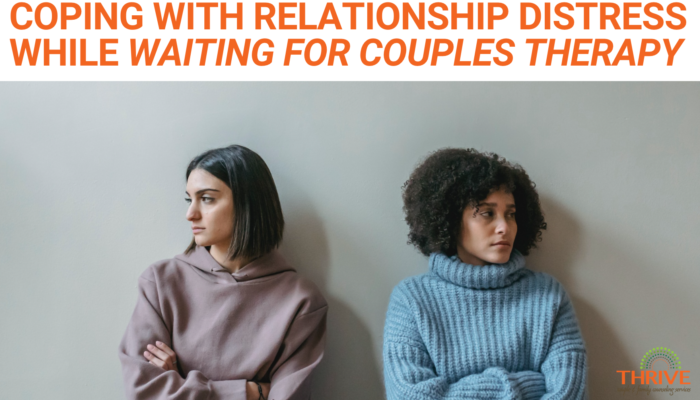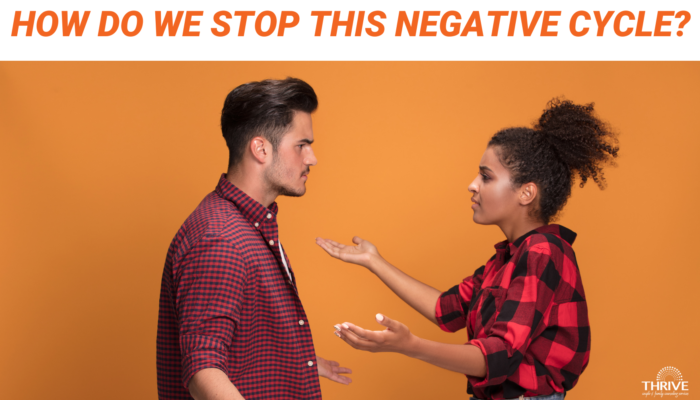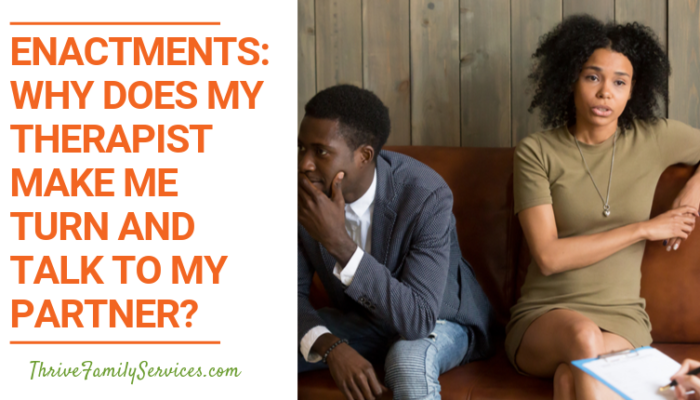Are you worried your partner is a narcissist? Do you wonder if you can ever truly connect with them? Not only that – what does narcissism even mean? Does it equate to abuse? How does narcissism show up in relationships? Basically, you might be wondering where narcissism comes from, and if there’s hope for your relationship with a narcissist.
When searching, “Is my partner a narcissist?”, you will receive many results that equate loving a narcissist with being in an abusive relationship. This can feel scary and hopeless.
As experienced Emotionally Focused Therapists, we are here to say there absolutely is hope. First, it requires a better understanding of what narcissism is, why it happens, and how to approach a partner who may struggle with this.
What is Narcissism?
When people say to me, “I think my partner is a narcissist,” my first question is- what does that mean to you? Narcissism gets thrown around like we all have the same understanding of its meaning, however with media and societal influences, it seems to be an umbrella term that means a lot of different things. It’s also important to note that true narcissism is thought to be relatively rare, though you couldn’t tell that by reading articles or social media.
Here are some ways that narcissism is often described on social media:
- Some people say their partner is a narcissist for having an affair, “They must be a self-centered person to have put me through this.”
- Some people say their partner is a narcissist because they never seem to understand how they are feeling, “They lack empathy and never validate me.”
- Still, some do use the term narcissist when they are describing an abusive relationship that has truly unsafe behaviors and patterns happening within it.
If we are going to do work around having a partner (or a loved one in general) who is struggling with narcissism, we need to be on the same page about what it means.
Narcissism is a set of coping strategies, not a personality trait.
Sometimes, a person has been using these same coping strategies for so long that they develop some rigidity about how they respond. They may also lack awareness of what they are feeling, how they are coping, and how it is impacting others.
The great news about people and relationships is that our brains are plastic – which means they are shapeable. We can all learn how to be more securely connected with our loved ones and community.
How does narcissism begin?
Narcissism is typically a set of learned behaviors. This may be a result of someone experiencing childhood trauma or abuse themselves, or simply never finding a place they felt they fit. The real or perceived experience of not belonging is dangerous to our well being and can be traumatic.
Many people struggling with narcissism developed this coping mechanism out of a response to the parenting they received (or lack thereof).
If our parents, our most important attachment figures, don’t prioritize our emotions, dismiss, or invalidate them, or simply overtake all emotional spaces with their own, then we are forced to find other ways to get our needs met and to receive the attention we so desire.
Every human is wired to want to look into the eyes of those we are closest to and to feel loved. When that doesn’t happen reliably enough, a child suffers and has to figure out how to cope.
People who use narcissism as a coping strategy desire to feel special more than anything.
- This can come in the form of needing to be adored by everyone in the room -“I want to be everyone’s favorite person.”
- This can also look like someone who enjoys being the most supportive and caring in the group, even to their own detriment.
- Perhaps they feel they are different from everyone else or misunderstood by society, leading them to isolate and become critical.
These are some ways in which people who use narcissism as a coping strategy can show this behavior and to feel what they yearn for most – to know “I am special to you.”
Narcissism as a coping strategy leads a person to use others to get this feeling of being special. Narcissists often ensure that they feel special regardless of consequences, and lack the understanding of the impact they are having on others. They may believe if they don’t feel special, then they don’t matter. To some, that may feel like a terrifying existence, and so they develop these coping strategies to avoid terrible feelings.
Why is my partner struggling with Narcissism?
What lies underneath narcissism is a partner who has learned maladaptive behavior to soothe themselves. This comes in the form of seeking attention and desiring to feel special above all else, no matter the consequences to those around them.
We all have ego and ego in and of itself can be very protective. If you don’t like yourself or believe in yourself, you may struggle to gain the confidence you need to make a change or fulfill your goals.
Striving to feel good about yourself can give you the boost you need to become successful despite the words of others, our histories, or our trauma experiences.
Narcissism takes it a step further and creates a reality in which the narcissist cannot make themselves vulnerable (without a lot of help) at the risk of being rejected.
To imagine or feel the pain, even for a moment, of not being liked by others or not being special, can be excruciating for those using narcissism to cope.
It risks opening the floodgates of their truth, which is that they are behaving this way to avoid feeling tremendous pain. They may not feel ready, or may lack awareness that they have been responding to their fears this way.
When you reach toward your partner, you are looking for validation or empathy, and someone coping with narcissism cannot express this to you. They can’t feel what you feel, because that would mean they are like everyone else, and that concept is unbearable. It leaves them without identity and without identity, their foundation would be shaken.
To someone who uses narcissism to cope, admitting they have faults or made a mistake feels so overwhelming and scary, that they may dig into their responses and remain seemingly unbothered by your emotional reach.
However, in therapy, we can start to make this cycle of demand and withdrawal more obvious and begin to work with it to change it.
With understanding and patience, your partner can learn, if they choose to, how to accept your emotional reach, not as a sign of weakness, but as an invitation to grow closer.
Where is the line between abuse and narcissism?
You get to decide what you cannot or will not tolerate. Abuse can take the form of physical harm, emotional or mental abuse, financial abuse, or any number of situations in which one partner is threatening, hurting, or creating fear in their partner. The partner who is doing harm must be willing to engage in a conversation about that harm. Safety must always be the top priority in all therapeutic work.
If an abusive partner is unwilling to stop or admit they are hurting their partner, then leaving the relationship is the safest option.
If a partner cannot apologize and see their participation in the pain, then leaving may be the best option.
In therapy, we will empower partners who are struggling with abuse in creating the safest exit possible with whatever resources are available to them.
With that said, narcissism does not equate abuse.
Not all people who use narcissism to cope cheat, intentionally harm, or manipulate others. Often, they are not aware of what they do and how it feels to the people who care about them.
Most people show up to their first therapy session without understanding all the ways in which they were trying to cope with their pain, whether that be rationalizing emotions, overeating, or procrastination.
Coping strategies take many forms, both positive and negative. Only when we understand the ways we are coping can we do something to shift those maladaptive coping strategies into something more supportive.
How to support your partner with narcissism
We have to start this process by understanding your attachment histories and how you took care of yourselves emotionally as children.
If either of you experienced trauma or lack of emotional responsiveness from parents or caregivers, we have to take some time to respond with compassion to this history. If the experiences of your childhood result in current distress and relationship challenges, we may explore if individual trauma therapy could be a helpful addition to your treatment.
If you and your narcissist partner can lean into the definition that narcissism is a set of coping strategies, then you can both begin to identify and use a new set of skills that leads to deeper connections.
Instead of feeling special to everyone, we can replace that with how special they are to you.
This takes time, effort, and a willingness to consistently engage in the process of therapy. Emotionally Focused Therapy (EFT) offers us an opportunity to create a secure bond between partners.
EFT helps to normalize the fact that all couples can get caught in negative cycles of interaction to which they both contribute. This could include how you see and respond to your partner and their coping strategies, narcissistic or otherwise.
An important part of our therapy can be to explore, with lots of curiosity and compassion, if the way you respond to your partner with narcissistic coping strategies is contributing to, and perhaps perpetuating, a negative cycle.
If your partner feels criticized, labeled by you, or concerned they will always disappoint you, that may contribute to a negative cycle in your relationship. This negative cycle could improve significantly if we can help you find other ways of letting your partner know their actions aren’t feeling good to you.
Folks coping with narcissism often do not feel that others are reliable, or that love is worth the risk. Their guard is up. Over time, therapy can support partners who cope with narcissism and allow them to hear the emotions and the effect their behavior has on their partners.
Through exploring, deepening understanding, and sharing, the partner coping with narcissism can begin to see their partner in a new light. This process will help them see that their partner is in fact safe and reliable. The partner coping with narcissism can begin to see that they are special – to you. And that is, in fact, more than enough.
Are you concerned the person you love is a narcissist? To get started working with one of our experienced Englewood couples therapists, click the button below.


 Hello, I’m Maury Holliman, Marriage and Family Therapist Candidate. I’m here to support you in your goals, whether they’re about your own personal growth or desires for change in your most important relationships or a combination of both.
Hello, I’m Maury Holliman, Marriage and Family Therapist Candidate. I’m here to support you in your goals, whether they’re about your own personal growth or desires for change in your most important relationships or a combination of both.

